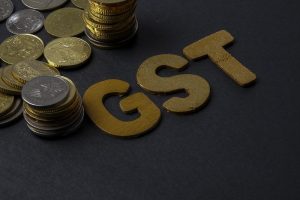
In fast-moving developments on Thursday, the Karnataka state authorities withdrew the pre-show cause notice issued just a day earlier to information technology bellwether Infosys. Besides the Rs 32,403-crore demand made by the investigation department of goods and services tax (GST) on Wednesday, there was another notice from the Karnataka state authorities.
In a disclosure to stock exchanges late on Thursday, Infosys said the Karnataka authorities had communicated to the company that they were withdrawing the pre-show-cause notice. The state authorities have also directed the IT firm to submit further response on the matter to the central authority — Directorate General of GST Intelligence (DGGI).
In another significant turn of things, sources have indicated the tax authorities at the Centre may review the GST notice.
This comes amid industry apprehensions that other IT firms may also face similar GST demands. Fearing a flurry of tax notices, industry association Nasscom, in a statement on Thursday, urged the authorities to look into investor concern over avoidable litigation and uncertainties in doing business.
“Each matter will be examined on a case-by-case basis, depending on its merit,” an official privy to the matter told Business Standard on Thursday.
The GST authorities will see if it could be viewed under the June 26 circular, providing clarity on the valuation of the “supply of import of services” by a related person.
The circular says for importing services, the deemed open market value of transactions will be nil if full input tax credit is available. However, whether Infosys is eligible under this needs to be examined, the person said.
Secondly, such cases need to be examined to check whether the issue is a result of widespread industry-wide trading practices.
Accordingly, it could be treated under the newly introduced Section 11A (of the Central GST Act), which allows the tax authorities to waive dues arising from prevalent industry practices, the official said.
The tax demand on Infosys is a pre-GST notice, served keeping in mind that any assessment for FY17 would be time-barred on August 5.
Officials said the tax authorities would be looking into the company’s response. Infosys had earlier responded to the Karnataka State GST authorities on the tax demand and is now in the process of replying to the investigation department of GST—DGGI– for the notice issued on Wednesday.
“Some sectors where notices are being issued based on expansive interpretation might be evaluated and could be regularised,” another official source pointed out.
Section 11A is one of the amendments to the Central GST (CGST) Act, approved by the GST Council on June 22 and included in the Union Budget on July 23.
The amendment will come into effect once the Finance Bill passed in the Rajya Sabha.
It allows regularising non-levy or a short levy of GST, where the tax paid either fell short or was not paid due to common trade practices. Besides, it has the potential to expedite resolving past disputes.
Officials said the new provision gave legal backing to the authorities and would be exercised where appropriate.
DGGI notice
The Directorate General of GST Intelligence or DGGI, issued the show cause on July 30, and it states as the company created overseas branches to service clients as part of its agreement with them, those branches and the company are each treated as “distinct persons” under the Integrated GST Act.
Further, the company was including its expenses on overseas branches as part of export invoices from India and, on the basis of those export values, was computing the eligible refund.
“Thus, in lieu of receipt of supplies from overseas branch offices, the company has paid consideration to the branch offices in the form of overseas branch expenses. Hence M/s Infosys Ltd Bengaluru is liable to pay GST under the reverse charge mechanism on supplies received from branches located outside India,” the DGGI notice said.
Infosys’ response
Infosys, on its part, has said the notice is for the period July 2017 to March 2022, and is on expenses by its overseas branches. It had responded to the notice, it said.
In an exchange filing, the IT major stated it had settled all dues and that GST was not applicable to the expenses claimed by the DGGI.
The reverse charge system mandates the recipient of goods or services, rather than the supplier, pays the tax.
GST payments are eligible for credit or refund against the export of IT services.
Supporting Infosys
Nasscom said on Thursday the notice demonstrated a lack of knowledge about the working of the sector.
Nasscom said on Thursday the tax notice to Infosys demonstrated “a lack of understanding of the industry’s operating model”. The association said the government and the GST Council had been supportive and, as a result, the circular was issued to address exactly this issue.
“The government circulars issued based on recommendations of the GST Council must be honoured in enforcement mechanisms so that notices do not create uncertainty and negatively impact perceptions on India’s ease of doing business. It is crucial that compliances obligations are not subject to multiple interpretations,” it said.
Source: Business Standard



